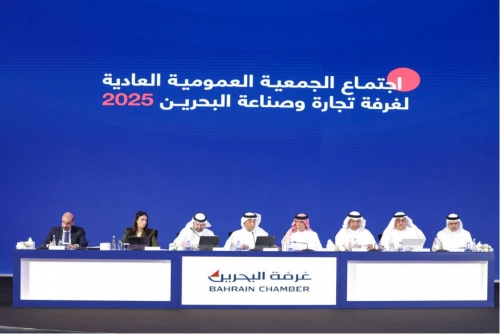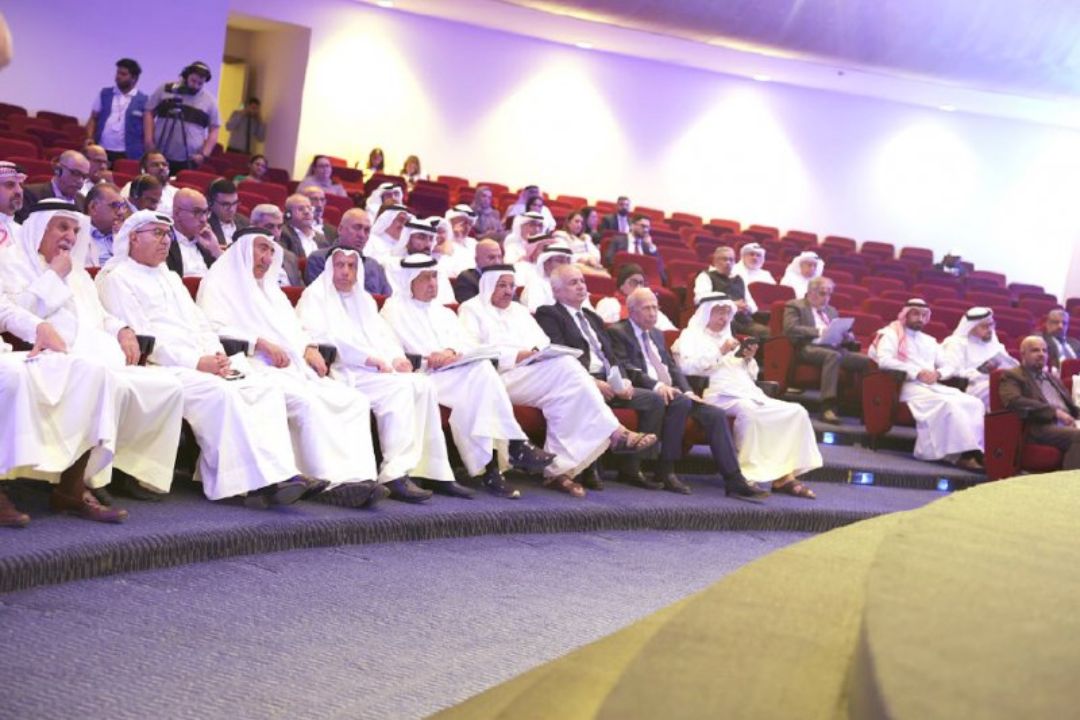Bahrain Chamber holds its General Assembly
TDT | Manama
Email: mail@newsofbahrain.com
The Bahrain Chamber of Commerce and Industry convened its General Assembly on Saturday, April 5, 2025, chaired by Sameer bin Abdullah Nass. The meeting was attended by 406 registered members, accounting for 1.11% of those who had paid their annual subscriptions.
The session focused on reviewing the chamber’s financial and administrative reports, which aim to strengthen the private sector’s role in the national economy and enhance transparency and member participation in economic discussions.
The Assembly ratified the minutes of its previous meeting (April 28, 2024), approved the Board of Directors’ annual report on 2024 activities, and endorsed the financial statements along with the external auditor’s report for the fiscal year. Members also approved the appointment of BDO as the external auditor for 2025 and authorised the Board to finalise the contract.
A key development during the “Any Other Business” segment was the approval of amendments to Article (26) of Decree Law No. (48) of 2012 and Article (30) of its executive regulations. These changes empower members to elect the Chamber Chairman directly. The Board of Directors was authorised to coordinate with the relevant authorities to implement the legal amendments.
In his address, Nass highlighted the past year’s achievements, noting the Chamber’s increasing developmental activities and reaffirming its commitment to supporting Bahrain’s economic goals. He stressed the Chamber’s strategic role in launching initiatives, strengthening partnerships, and delivering services to its members.
Nass thanked His Majesty King Hamad bin Isa Al Khalifa and His Royal Highness the Crown Prince and Prime Minister Prince Salman bin Hamad Al Khalifa for their continued support of the private sector. He emphasised the Chamber’s active engagement with the leadership to enhance Bahrain’s investment climate and competitiveness, which aligns with the Bahrain Economic Vision 2030.
The Chamber implemented its strategic plan for the 30th session by launching 22 initiatives focused on improving the business environment, stimulating investments, and proposing economic reforms. These included advocating for changes to the social security law to ease burdens on SMEs and suggesting updates to checkrelated regulations to ensure financial stability.
To foster economic dialogue, the Chamber hosted its third annual conference for permanent committees under the theme “Towards an Economic Environment that Stimulates Growth and Investment.” The event gathered economic experts and private sector leaders to discuss challenges and propose innovative solutions to boost Bahrain’s regional and global competitiveness.
Meanwhile , First viceChairman, Khalid bin Mohammed Najibi, chaired the meeting on behalf of Nass. During the meeting, he announced that the chamber received, on March 27, 2025, a written request signed by 69 members of the General Assembly, reque sting the inclusion of the amendment of Article (26) of Decree Law No. (48) of 2012 and Article (30) of the executive regulation of the same decree in the agenda of the General Assembly under the item “Other New Business.” Najibi explained that the chamber’s Customer Service Department reviewed the request and verified that it met the legal requirements. It was found that 57 of the signatories met the criteria set out in Article (15) of Decree Law No. (48) of 2012, which allows for the inclusion of items not listed on the agenda based on a written and justified request from at least fifty members submitted at least two business days prior to the meeting.
Najibi confirmed that based on the request meeting the requirements, the issue was included on the agenda for discussion in the General Assembly, supported by several justifications, the most prominent of which was: “Enhancing the flexibility of commercial work by enabling the General Assembly, as the highest authority, to choose its representatives more broadly and allowing elected board members to choose the Chairman from among them, similar to what is practiced in civil society institutions and the Shura and Council of Representatives, without a ceiling limiting private sector options.”
dzfds
Related Posts


